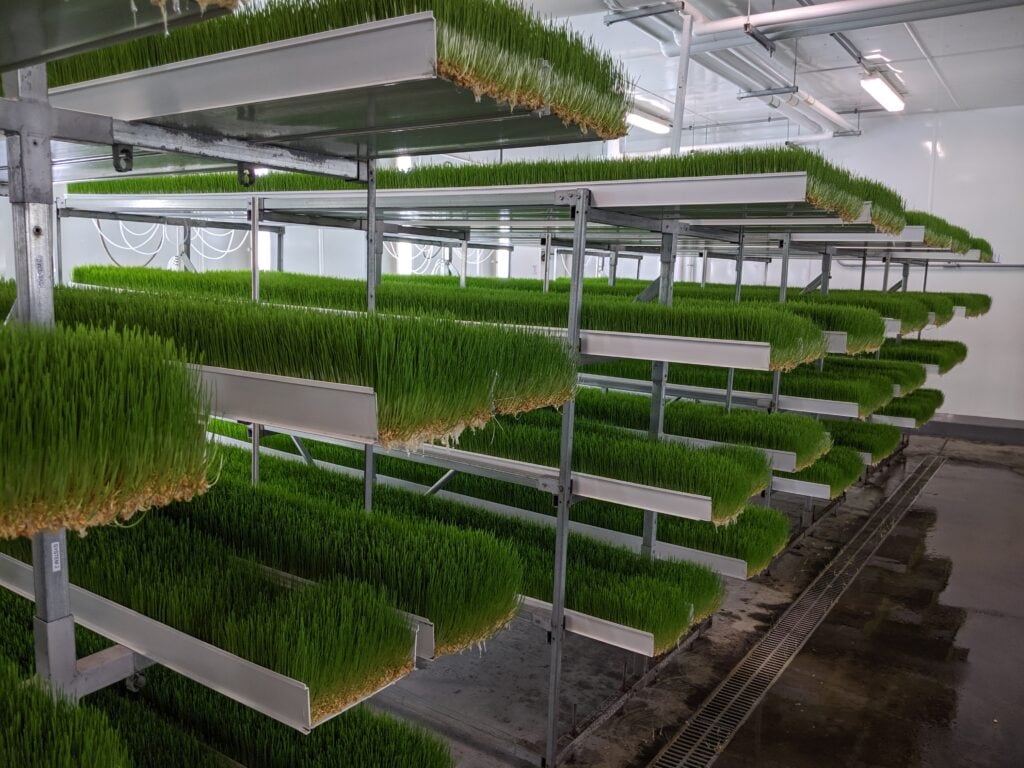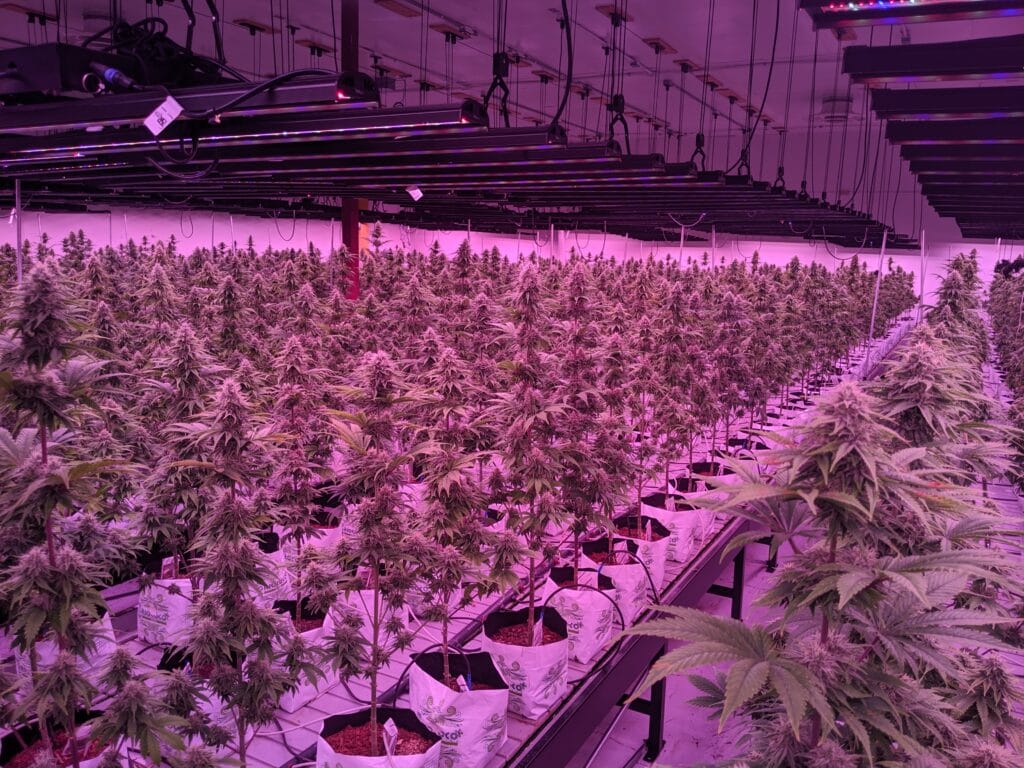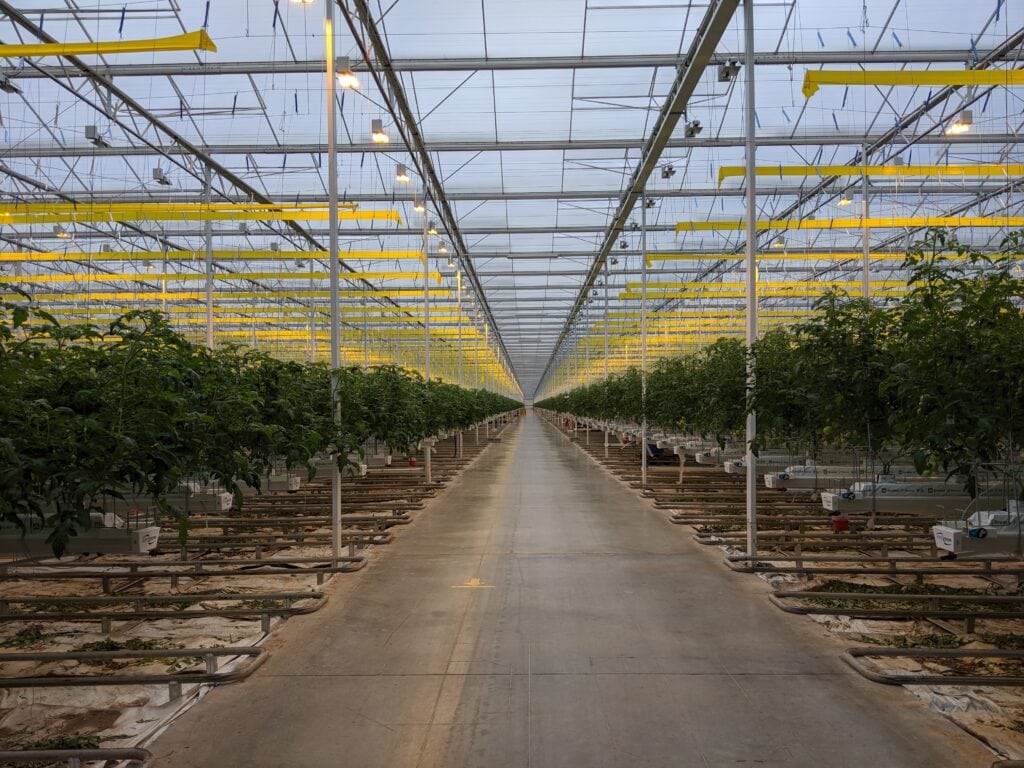Lin Mezori, the matriarch behind Pure Recovery, has transformed the wellness and recovery space with her vision of blending innovative therapies and ...
Jacob Tannenbaum on Sustainable Farming and Cannabis Innovation
Written by: Esther Strauss
Esther is a business strategist with over 20 years of experience as an entrepreneur, executive, educator, and management advisor.
Published on February 27, 2024

Welcome to our conversation with Jacob Tannenbaum, co-founder and managing partner at Fresh Alternative Farms. With a unique blend of expertise in landscape architecture, real estate, and controlled environment agriculture, Jacob has been at the forefront of pioneering sustainable practices in the cannabis and agriculture technology sectors.
Join us as we delve into his journey from Texas A&M University and Cornell University to co-founding an innovative firm that’s reshaping the landscape of modern farming. We’ll explore the challenges, triumphs, and insights from a leader who’s not just growing plants but also cultivating a greener future.
The Genesis of Fresh Alternative Farms
SBS – What inspired your transition from landscape architecture to co-founding Fresh Alternative Farms?
Jacob – I returned to graduate school at Cornell University to get more involved at the decision-making level of the built environment by doing a Master’s in real estate. While there, I took a variety of agriculture elective courses out of interest. That led to a fascination with CEA and aquaponics in particular and how I met my business partner.
Jacob’s Transition: From Landscape to Cannabis
SBS – How has your education in landscape architecture and real estate influenced your approach to controlled environment agriculture?
Jacob – Design and real estate as a focus are not the angles most people approach the CEA industry from. Collaborating with my plant science business partner and the rest of our team, who bring in-depth scientific perspectives, allows us to understand the industry wholistically.
Regenerative Development in Agriculture
SBS – Can you discuss the role of regenerative development and permaculture in your business model?
Jacob – The routes of CEA or permaculture are the best ways to mitigate most of the externalities of the industrial monocrop farming system dominant today. Our team believes that it is in the best interests of the entrepreneurs we support, to put them on a path of longevity — even if today, the regulatory system does not yet impose financial repercussions for those externalities; tomorrow, it may.

From Design Group to Fresh Farms
SBS – What were the key challenges and milestones in your journey from founding Tannenbaum Design Group to establishing Fresh Alternative Farms?
Jacob – Starting a new company and finding your product market fit is always a challenge. Letting the customer guide your businesses direction and not being too reverent to your original plans is the best way forward.
Real Estate Meets Agri-Tech
SBS – How do you integrate your expertise in real estate and finance into the agriculture technology and cannabis cultivation sectors?
Jacob – All physical asset businesses are beholden to the real estate and finance sectors today. Their extraction has become incredibly efficient. Agriculture entrepreneurs often need guidance in real estate and finance — these are huge early decisions that impact their future.
Aquaponics Startup Consulting
SBS – What strategies do you employ in consulting for aquaponics facility startups?
Jacob – Aquaponics is a nascent industry. We bring experience in development and operations that helps clients make difficult-to-undo technology, design, and procedural decisions that put them on a better path to success.

Financial Modeling in Agri-Tech
SBS – How do you approach the development of financial models and business plans for your clients, particularly in the evolving field of controlled environment agriculture?
Jacob – Margins are tight in the agriculture industry. Having a good plan that is financially sound is the difference between making it through exogenous challenges and fire-selling your assets off to the next guy or gal. Too many people focus on the top-line revenue but don’t do the work to develop models that show them what will happen if interest rates or crop prices change, for instance, and in turn, can’t react preemptively when they do.
Sustainable Agriculture’s Future
SBS – What are your insights on the future of landscape architecture in relation to sustainable agriculture practices?
Jacob – The industry holds the keys to solving many of the greatest crises of our time — biodiversity collapse, climate change, pollution mitigation, and mental and physical health declines in urbanites. Unfortunately, most developers neglect to hire them or, at best, treat it as an after-thought — capping impact. How landscape architecture can prove worth investing in an increasingly profitable tunnel vision real estate world will be key. Permaculture offers a value-added proposition that curb appeal alone has lost in the seller’s market we live in today.
Impactful Projects in Controlled Agriculture
SBS – Can you share a success story where your unique skill set significantly impacted a project or client?
Jacob – Entrepreneurship is a very different game than corporate jobs. Many jobs today demand single-dimensional excellence. With entrepreneurship, the more you can do for yourself early on, without relying on third parties to make and maintain them, means extra runway and faster product execution early on. An example for us would be being able to do all our early graphics, website, and IT work in-house, even though nobody on the team officially came from a computer science background. For bootstrapped companies, this allows limited early capital to be allocated elsewhere.
Balancing Agriculture and Business
SBS – How do you balance the technical aspects of agriculture with the business and marketing side in your role at Fresh Alternative Farms?
Jacob – My best advice is to find a great business partner who excels at a completely different set of skills. It will make the work both better and more enjoyable.
Entrepreneurship Advice in Agri-Tech
SBS – What advice would you give entrepreneurs with a background similar to yours looking to enter the agriculture technology or cannabis industry?
Jacob – Swim with the current, not against it. Let people tell you their problems and then offer to solve those you can.

Trends in Controlled Environment Agriculture
SBS – What trends do you foresee in controlled environment agriculture, and how is Fresh Alternative Farms preparing for these?
Jacob – I think it’s imperative. Earth simply cannot handle another century of industrial farming practices, and permaculture alone is only a regionally viable solution. Once price parity can be achieved with the traditional farming industry, there will be a paradigm shift. That may come in the form of regulatory or technological changes.
Future of Tech in Sustainable Farming
SBS – Finally, how do you envision the role of technology in shaping the future of sustainable agriculture and cannabis cultivation?
Jacob – Cheap energy would be the most impactful technology for agriculture and cannabis cultivation. Automation technologies would be second. They solve the greatest risks that have been putting entrepreneurs out of business.
Comments
Leave a Reply
Subscribe to Our Newsletter
and gain insider access to cutting-edge business insights and trends.
Featured Resources

How Lin Mezori Is Transforming the Recovery Industry
Published on January 2, 2025
Read Now

How MedAssent DDS Supports Dental Medication Management
Published on September 2, 2024
Lauren Fang is a pioneering force in digital health, co-founding MedAssent DDS with a vision to revolutionize dental care. With a deep-rootedconnect ...
Read Now

How Dr. Arlayn Castle Built a Transformational Coaching Business
Published on August 2, 2024
In this interview, we are excited to speak with Dr. Arlayn Castle, the visionary founder of Castle of Knowledge. Specializing in life andtransformat ...
Read Now
If you are thinking about starting an agriculture or cannabis startup, reach out to us at https://freshalternative.farm/contact-us/
We would be happy to connect and help streamline your growth.